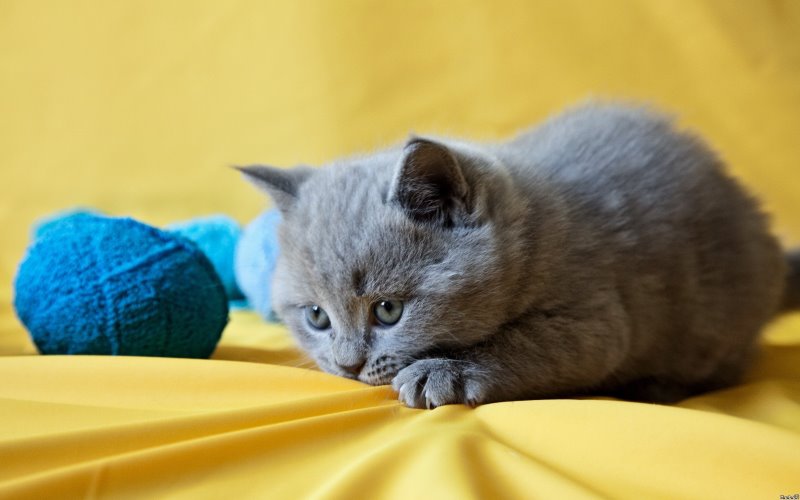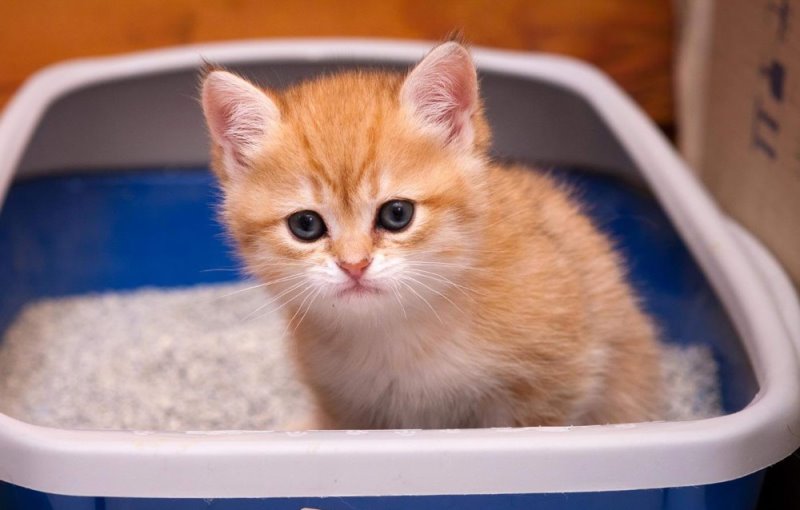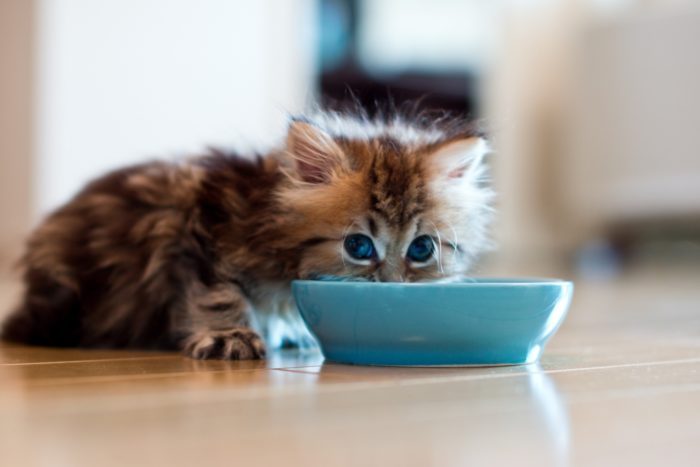Diarrhea with blood in the kitten is a sign of a dangerous disease. Observation of such a symptom in a small animal can lead to the most serious consequences. When it appears, you must immediately take certain measures. But first you need to establish the cause of the pathology.
Contents
Causes of diarrhea with blood
Diarrhea is a protective mechanism of the body, in which toxins and foreign substances are evacuated from the intestinal lumen.
Diarrhea is a common symptom that occurs with many diseases:
- too fast for a kitten to switch to an adult diet;
- abrupt transition to dry rations;
- fast inclusion of a new product in the diet;
- a sharp change in diet;
- overfeeding;
- allergy to medications;
- severe stress;
- allergy to food;
- viral infections;
- bacterial infections;
- helminthic invasion;
- kidney and liver diseases;
- hyperthyroidism;
- intestinal obstruction;
- intestinal cancer;
- diabetes.
As you can see, diarrhea speaks about many diseases, but the presence of blood in the feces is much less. Blood can enter the lumen of the intestine in several ways:
Violation of the permeability of blood vessels. This pathology occurs in some viral diseases (they are rare), as well as poisoning with poisonous chemicals. Microscopic hemorrhages in this case will be on many mucous membranes, and not only in the intestine.
Erosion, ulcers of the intestine, microcracks. Such damage occurs in most cases. The culprit can be worms, stomach ulcers (due to stress), foreign body in the lumen of the intestine,
Intestinal perforation. In this case, the integrity of the gastrointestinal tract is disrupted, a large amount of blood is expelled into the intestinal lumen. In this situation, the most dangerous is not the cause, but the hole itself, because through it the animal can lose a lot of blood and die from it.
It should be remembered that when the blood leaves the stomach or the small intestine, the feces turn red, as hemoglobin can digest. Directly blood in the form of veins or fluid will be found in the stool if bleeding is observed in the large intestine or in the last parts of the small intestine.
Other symptoms
What to do and how to treat diarrhea is completely dependent on an accurate diagnosis, so first you need to understand the etiology.
To determine the cause of diarrhea, you need to pay attention to some other symptoms:
- How is the act of bowel movements and feeding? Diarrhea appears immediately after eating, after 1-2 hours, there may also be a situation where diarrhea is not associated with feeding (it is almost always).
- What color is the feces? Gray hue is a sign of a large amount of mucus, green – fermentation, yellow – a large amount of undigested bilirubin, white – the indicator of bilirubin absence. Red – bleeding in the large intestine, black – bleeding in the stomach or in the small intestine.
- Do any stools have any abnormal odors? A strong unpleasant odor is a sign of fermentation or the presence of toxins in the intestine (which can, for example, excrete worms).
- The animal may have anemia with severe bleeding. In particular, the nose, the mucous membranes of the oral cavity will fade.
- What is the temperature of the kitten? Normally in kittens the temperature ranges from 38.0oC to 39.3oC, in the morning the temperature is slightly lower than in the evening (half a degree). An increase in temperature of 1-2oC indicates a viral infection, at 2-4oC – a bacterial infection.
- What kind of kitten has the pulse and respiration rate? Normally, the pulse in kittens fluctuates between 130-150 beats per minute, and breathing – about 30 movements per minute. A strong increase in the pulse, together with its weakening, speaks of tachycardia.
Treatment
Treatment of diarrhea with blood in a kitten includes a diet and specific therapy. First of all, eliminate dangerous symptoms, then begin to fight the causes of the disease.
When poisoning with rat poison
Smecta or Entourofuril will help to remove toxins from the lumen of the intestine, but since rat poison is quickly absorbed into the blood, the life of the animal adsorbents will not save. At a poisoning it is necessary to enter a kitten subcutaneously vitomin K it temporarily blocks actions of a poison that will give time for the reference in clinic.
Symptomatic therapy and diet
Diarrhea of an alimentary character can be treated at home. But if the blood in the feces, or he gets a black or green color, then you need to contact the veterinarian, take the tests.
With diarrhea, the body loses a large amount of potassium and sodium. As a result, water-salt metabolism is broken, which causes diarrhea to become worse, and the circle closes. Intravenous it is possible to introduce physiological solutions of salts and glucose, such therapy is also recommended for poisoning.
When poisoning is necessary to remove toxins from the body. Adsorption preparations such as activated charcoal (better white, it acts more carefully), and also Enterosgel, Enterosorb or Smecta will help in this.
The diet for kittens is prescribed according to the following rules:
- On the first day you need total starvation. But it should last no more than 10-12 hours, after which the kitten must be fed. Clean boiled water should be freely available.
- After a hunger-strike, the pet should be fed with boiled porridges (preferably rice), boiled low-fat meat (beef, chicken), hard-boiled eggs.
- You can give the kitten broths of oak bark, flax seed, chamomile grass or St. John’s wort (the mixes are sold in a regular pharmacy).
- After passing the diarrhea of the kitten, it is desirable to feed low-fat dairy products. For example, fat-free yogurt, fermented biscuit, bifilux. Cow’s milk can not be given, except for the milk of a mother cat.
- To restore the microflora, you need to give the kitten probiotics.
When diarrhea is not always necessary to use tablets against diarrhea. Remember that diarrhea is a protective mechanism, the blocking of which can sometimes worsen the condition of the pet.
Anthelmintic preparations
The most common cause of diarrhea in kittens up to 4 months is intestinal parasites, so you need to talk about antihelminthic drugs separately. It should be noted right away that diarrhea with mucus is also often observed after a vomiting. This is due to the death of parasites and the release of cadaveric toxins.
Remember that many (not all) anthelminthic drugs are produced separately for adult cats and separately for kittens. Buy drugs that are specially created for kittens (usually a suspension).
The most widely distributed are the following drugs:
- Milbemax;
- Polyvercan;
- Prazitel.
All of them have side effects (which are associated with the death of parasites), the most frequent contraindication is liver failure. Kittens are scheduled for de-worming after 2 months of life, but in the presence of parasites it can be done at an earlier time. In this case, it is better to use softer drugs, such as Tronzil-K and Febtal.
Antibacterial drugs
You can give antibiotics to your pet only if you are sure that the cause of diarrhea is a bacterial infection. In all other cases, antibiotics will be more harmful than beneficial, as they destroy not only pathogenic, but also beneficial microflora.





















